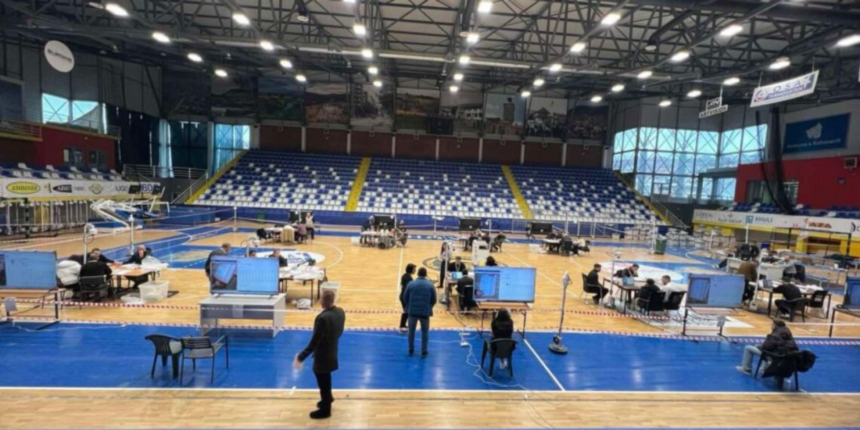It has been two weeks since Kosovo underwent the electoral process for the general parliamentary elections, the first since independence, which were held within the regular time frame.
42.56% was the percentage of citizens who participated in this electoral process on Sunday, February 9th, or 838,763 people cast their votes in 38 municipalities of Kosovo.
While citizens’ work ended with casting their votes, the Central Election Commission (CEC) had just begun its work.
The first challenge came with the malfunction of the online platform when preliminary results were supposed to be processed after the closure of the voting centers. The maintenance company had said that the CEC website, along with other government infrastructure, had been a target of continuous cyberattacks.
This was also confirmed by the Deputy Prime Minister of the outgoing government, Besnik Bislimi, in Poland, during a roundtable where European and regional ministers gathered to discuss “Hybrid Threats to the Enlargement Process and Potential Responses.”
The Prosecutor’s Office also took up the issue and immediately requested the necessary information from the CEC to verify whether there were any elements of criminal activity.
Problems with the system continued even when the counting of votes for candidates began at the Municipal Counting Centers, a process that, for the first time, took place in 38 municipalities based on the new Election Law.
Despite the initial difficulties, the system began functioning, and the counting of votes for candidates running for seats in the Assembly continued until the previous Friday, when the counting was completed for all 2,533 voting centers.
However, candidates, as well as political parties, are still awaiting the counting of votes from the diaspora, which is expected to begin next week, as the verification process is nearing completion according to CEC confirmations.
After that, the counting of conditional votes and votes from persons with special needs will take place.
There are a total of 12,801 conditional ballots, and 2,597 votes to be counted at the Counting and Results Center.
Only after the counting of each of these votes is completed, will the CEC be able to announce the final results and subsequently certify them.
In previous elections, as CEC spokesperson Valmir Elezi compared, the institution needed 18 days to announce the final results, and an additional 8 or 9 days to certify them.
“Let me explain that to arrive at the final result announcement for political parties and candidates for deputies, the CEC follows the steps provided by the Law on General Elections and subordinate acts. The new Election Law has increased the responsibilities for the CEC. One such responsibility is the counting of votes for candidates in the Municipal Counting Centers and not at the voting centers as was the case in the past. For the record, in some of the previous electoral processes for the Kosovo Assembly, such as in 2014, 2017, and 2021, the CEC needed 18 days after the election day to announce the final results and an additional 8 or 9 days to certify the final result,” Elezi said.
So far, from the counting of these votes, the Vetëvendosje Movement has 40.90% of the votes, the Democratic Party of Kosovo has 22.03%, the Democratic League of Kosovo has 17.64%, and the AAK-Nisma coalition and other partners have 7.46% of the votes.
In the preliminary statement, the head of the EU Election Observation Mission, Nathalie Loiseau, said that the electoral process proceeded smoothly and demonstrated stability and commitment to democratic principles. /RTK/







